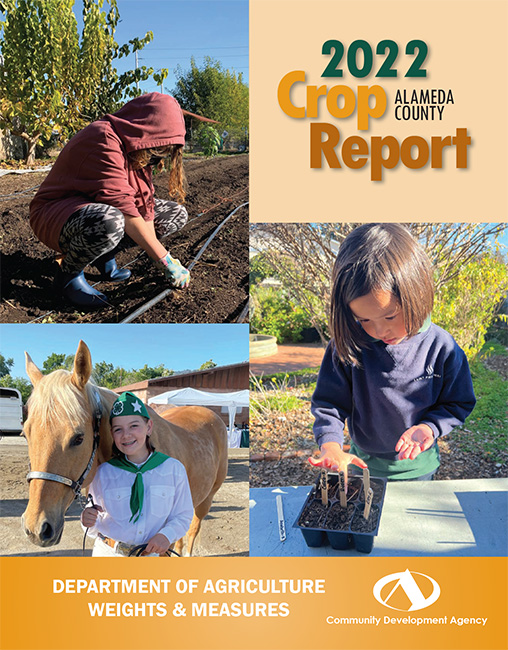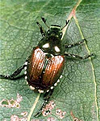Pest Exclusion

Inspecting flowers for export certification

Inspecting ethnic markets for agricultural pests
The Alameda County Department of Agriculture is responsible for enforcing quarantine laws and regulations to prevent the introduction of harmful insects and plant diseases into and within California by inspecting unprocessed agricultural products entering into, or transiting through, Alameda County. These inspections serve to protect California's agricultural industry, the largest in the nation and valued at over $30 billion dollars annually.
Quarantine regulations can essentially be divided into two categories: Exterior quarantines and Interior quarantines. Exterior quarantines regulate the movement of commodities entering into California. Interior quarantines regulate the movement of commodities within the State. Examples of some harmful pests that are regulated by Exterior quarantines are the Mediterranean Fruit Fly, Mexican Fruit Fly, Gypsy Moth, Red Imported Fire Ant* and Japanese Beetle, all of which could cause severe damage to California crops and prevent the export of our products to other areas.
Interior quarantines are also in place to prevent the spread of harmful insects or plant diseases that are in California but are not widespread. Citrus Tristezea virus and Ozonium Root Rot are examples of plant diseases regulated by interior quarantines. The Red Imported Fire Ant* and Glassy-winged Sharpshooter* are examples of insect pests that may be transported on host plants around the state; consequently host plants and associated articles are regulated under interior quarantines. *(Some pests are regulated by both Exterior and Interior quarantines).
Inspections of plants and plant parts, fruit, vegetables and seed, are conducted each day at various entry points, such as Federal Express, United Parcel Service, the United States Post Office, airports and many other locations within the county. Packages are opened and the contents visually examined to make sure that they are free from insects or plant diseases that could infest and damage California crops. Infested commodities may be reconditioned, treated, returned to the sender, or destroyed.
We also inspect commodities for export out of California in order to make sure they comply with the specific entry requirements of the destination state or country. California's export market has grown substantially in the last few years and generates billions of dollars in revenue each year.
Agricultural staff also work with local specialty markets and flea markets to prevent the sale of smuggled produce by educating owners on how to purchase produce from reliable sources.
 Community Development Agency
Community Development Agency AGRICULTURE PROGRAMS
AGRICULTURE PROGRAMS





